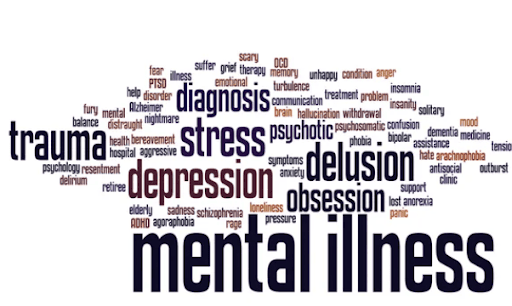Introduction
Mental health challenges don’t discriminate by gender — yet when it comes to seeking support, men often stay silent far longer than women. Despite the growing conversations around emotional well-being, many men still face invisible barriers that prevent them from reaching out for help.
The result? Untreated mental health issues that quietly erode well-being, relationships, and quality of life.
In this article, we’ll dive deep into:
- Why men often avoid seeking mental health support
- The hidden costs of staying silent
- Powerful ways to encourage men to embrace help
- Signs it’s time to reach out to a professional
Because mental health is not just important — it’s essential.
The Silent Struggle: Why Many Men Avoid Seeking Mental Health Help

1. Societal Expectations and Traditional Gender Norms

From childhood, many boys are conditioned to believe that “real men” are stoic, tough, and emotionally unshakable. Cultural messages like “man up,” “be strong,” or “crying is for the weak” send a dangerous signal: showing vulnerability is shameful.
As these boys grow into men, many internalize the belief that asking for help — especially for something emotional — is a failure. Even when they feel overwhelmed, depressed, or anxious, they push through silently, thinking that suffering in silence is somehow a badge of honor.
The reality? Vulnerability is not weakness. It’s the ultimate form of courage. But undoing decades of conditioning isn’t easy without awareness and support.
2. Stigma and Shame Around Mental Illness

Despite progress in mental health advocacy, stigma remains a powerful force — especially for men. Many men fear judgment not just from society, but from their own inner critic.
They may worry:
- What will people think if they know I’m struggling?
- Will I be seen as unreliable at work?
- Will my family lose respect for me?
This deep-rooted shame often leads to dangerous coping strategies: denial, emotional numbness, overworking, substance abuse, or even aggression.
Rather than seeking help early, men often wait until they hit a breaking point — when the pain becomes too much to bear.
3. Lack of Awareness and Recognition of Symptoms
One of the most overlooked reasons men don’t seek help is simple: they don’t realize they need it. Mental health conditions like depression and anxiety can present differently in men compared to women.
Instead of sadness, many men experience:

- Anger and irritability
- Risk-taking behavior
- Substance misuse
- Physical symptoms like headaches, stomach issues, or fatigue
Because the emotional pain doesn’t always look like “depression” in the stereotypical sense, men — and those around them — might miss the signs altogether.
Recognizing that mental health struggles can look different is critical for early intervention.
4. Fear of Vulnerability and Loss of Control

Opening up about emotional pain can feel terrifying — especially for those taught to “stay in control” at all costs. Therapy, by nature, asks individuals to explore uncomfortable emotions, memories, and thoughts. For many men, the idea of losing that emotional “armor” feels threatening.
There’s often a lingering fear:
- What if talking about it makes things worse?
- What if I can’t handle what surfaces?
This fear of emotional overwhelm keeps many men locked in silent suffering. Yet, paradoxically, facing emotions head-on in a safe space often leads to greater control and resilience over time.
5. Lack of Visible Role Models
Representation matters — and for a long time, there simply weren’t enough visible examples of men openly discussing mental health. Without role models — whether athletes, celebrities, community leaders, or everyday men — it’s easy for men to feel isolated in their struggles.
Fortunately, change is happening. Public figures like Dwayne “The Rock” Johnson, Michael Phelps, and Prince Harry have spoken candidly about their mental health battles, helping to normalize the conversation.
Still, we need more voices, more diversity, and more stories to continue breaking the cycle.
The Hidden Cost of Staying Silent

Ignoring mental health issues doesn’t make them disappear. It often magnifies the pain over time — and the consequences can be devastating.
- Higher Suicide Rates:
Men die by suicide at rates significantly higher than women worldwide. Many of these tragedies occur because men don’t seek help early, when interventions could have saved lives. - Substance Abuse:
To numb emotional pain, many men turn to alcohol, drugs, or risky behaviors, which only compound their struggles. - Relationship Struggles:
Emotional withdrawal, irritability, and communication breakdowns can strain marriages, friendships, and family bonds. - Physical Health Problems:
Chronic stress, untreated anxiety, and depression contribute to heart disease, hypertension, and weakened immune function.
Mental health is health. And taking care of your emotional well-being is just as vital as caring for your body.
How to Encourage Men to Seek Mental Health Support
1. Normalize Conversations About Mental Health

We need to talk about mental health the same way we talk about physical health — openly, casually, and without judgment. Checking in with the men in your life doesn’t have to be dramatic. It can be as simple as:
- “Hey, you seem stressed lately — want to talk?”
- “Just checking in — how’s everything going mentally?”
When conversations about feelings become routine, the shame barrier slowly starts to erode.
2. Redefine What Strength Really Means
Strength isn’t about bottling up pain — it’s about confronting challenges head-on. It’s time to reshape the narrative so that seeking help is seen as a bold, courageous act rather than a weakness.
Sharing stories of resilience, growth, and healing after seeking therapy can inspire men to take action for their own well-being.
3. Provide Male-Centered Mental Health Resources
Some men may feel more comfortable in environments that align with their communication style. Men-focused support groups, action-oriented therapy models (like solution-focused therapy), and coaching programs designed for men can make a big difference.
Resources that prioritize practical strategies, goal-setting, and concrete progress often resonate more effectively.
4. Showcase Real Male Role Models
When men see others they admire — whether in their communities, workplaces, or the public eye — openly discussing therapy, medication, or emotional struggles, it normalizes the process.
Sharing real, relatable stories helps dismantle the idea that emotional pain must be hidden.
If you have a personal story of growth through therapy or coaching, consider sharing it. Your story could be the permission someone else needs.
5. Make Help Accessible and Discreet
Privacy matters. Many men worry about others finding out they’re seeking help. Offering:
- Virtual therapy sessions
- Anonymous mental health hotlines
- Confidential workplace mental health programs
can make a huge difference.
Meeting men where they are — and removing logistical barriers like time, cost, or fear of exposure — empowers more to reach out.
Signs It’s Time to Seek Professional Help

If you or someone you know is experiencing:
- Persistent sadness, anger, or numbness
- Loss of interest in activities once enjoyed
- Chronic stress, irritability, or burnout
- Substance abuse to manage emotions
- Thoughts of self-harm, hopelessness, or suicidal ideation
It’s time to reach out. Therapy, coaching, medication (if needed), and lifestyle interventions can transform lives — and it’s never too late to start.
Conclusion: Changing the Story Together
Mental health struggles don’t make you less of a man — they make you human. By breaking the silence, challenging outdated stereotypes, and creating safe spaces for support, we can help more men live fuller, healthier, and more authentic lives.
👉 If you’re ready to prioritize your mental health, don’t wait. Book an appointment with a qualified professional today.
Taking the first step is a powerful move toward healing — and you absolutely deserve it.









0 Comments